 The gambling industry is today reeling from the news that the chief executive of one of the UK’s largest betting websites, BetonSports, has been arrested in the States on an US indictment “alleging various criminal acts against multiple defendants.”
The gambling industry is today reeling from the news that the chief executive of one of the UK’s largest betting websites, BetonSports, has been arrested in the States on an US indictment “alleging various criminal acts against multiple defendants.”
David Carruthers, the British CEO of BetonSports, was arrested at Dallas, Fort Worth as he tried to change planes and was held overnight in the airport clink.
The company’s shares were suspended in London today, with Carruthers charged under racketeering laws in connection with a US probe of online gambling.
In addition to the criminal charges, the US has filed a civil case in St. Louis federal court, asking that Betonsports be ordered to stop taking sports bets in the US and to return any money held by US customers in their gaming accounts.
US District Judge Catherine Perry responded by issuing a temporary restraining order granting the request, with a hearing scheduled within 10 days.
Other gambling sites responded by going into freefall, with PartyGaming dropping 7.5 pence (7.3 percent), to 95.5 pence early this morning.
 It was the same story with Sportingbet, owners of Paradise Poker, who saw their stock slide 54 pence (19 percent) to 228 pence, while 888 Holdings, the biggest of the online casino companies, crashed 17.5 pence ( 9.1 percent) to 175.5 pence.
It was the same story with Sportingbet, owners of Paradise Poker, who saw their stock slide 54 pence (19 percent) to 228 pence, while 888 Holdings, the biggest of the online casino companies, crashed 17.5 pence ( 9.1 percent) to 175.5 pence.
Early this morning, BetOnSports PLC issued a statement which included the following:
“The Board have in the meantime been reviewing with their lawyers the impact of the indictment and are considering the serious business impact of the temporary restraining order on its business and that review is continuing. Given the issues and uncertainties involved, until the review is complete and a fuller announcement can be made resolving the uncertainties concerning the future of the Company, the Board has requested the London Stock Exchange to suspend trading in the company’s shares.”
Today’s actions are part of a continuing campaign by US lawmakers to crack down on online gambling, a business which rakes in a mighty $12 billion-a-year.
 Movielink, a service which delivers films over the Internet, will soon be offering the ability to burn the downloaded films to DVD, complete with DRM protection, reports ZDNet.
Movielink, a service which delivers films over the Internet, will soon be offering the ability to burn the downloaded films to DVD, complete with DRM protection, reports ZDNet.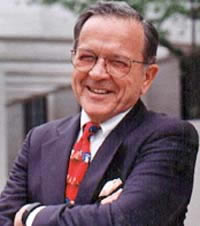 The US Democratic party has adopted net-neutrality as a party-political issue following the rejection of a second pro-neutrality amendment in a vote late last week.
The US Democratic party has adopted net-neutrality as a party-political issue following the rejection of a second pro-neutrality amendment in a vote late last week. Former presidential candidate Senator John Kerry commented, “This vote was a gift to cable and telephone companies, and a slap in the face of every Internet user and consumer.” Another Democrat, Senator Ron Wyden, placed a ‘hold’ on the bill which temporarily stops further progress but a decision is inevitable and both sides are marshaling forces behind their cause.
Former presidential candidate Senator John Kerry commented, “This vote was a gift to cable and telephone companies, and a slap in the face of every Internet user and consumer.” Another Democrat, Senator Ron Wyden, placed a ‘hold’ on the bill which temporarily stops further progress but a decision is inevitable and both sides are marshaling forces behind their cause. Imagine a world where Internet performance is controlled by the company who owns the cables and where speed is sold to the highest bidder. Imagine a world where some Web sites load faster than others, where some sites aren’t even visible and where search engines pay a tax to make sure their services perform at an acceptable speed. That’s the world US Telecommunications companies (telcos) such as AT&T, Verizon, Comcast and Time Warner are trying to create.
Imagine a world where Internet performance is controlled by the company who owns the cables and where speed is sold to the highest bidder. Imagine a world where some Web sites load faster than others, where some sites aren’t even visible and where search engines pay a tax to make sure their services perform at an acceptable speed. That’s the world US Telecommunications companies (telcos) such as AT&T, Verizon, Comcast and Time Warner are trying to create.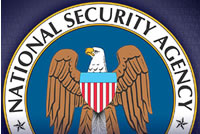 Think carefully the next time you edit your Flickr or Myspace profile.
Think carefully the next time you edit your Flickr or Myspace profile. 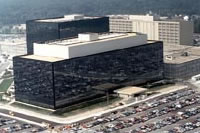 In September 2005 the European Commission adopted a proposal that would see telecommunications data held for one year and Internet data for six months and, last month, the European Court annulled the agreement which compelled airlines to submit private data on passengers flying to the US.
In September 2005 the European Commission adopted a proposal that would see telecommunications data held for one year and Internet data for six months and, last month, the European Court annulled the agreement which compelled airlines to submit private data on passengers flying to the US. Saturday saw anti-DRM protests at eight Apple stores across the USA organised by DefectiveByDesign, who are running an on-going ‘Campaign to Eliminate DRM.’
Saturday saw anti-DRM protests at eight Apple stores across the USA organised by DefectiveByDesign, who are running an on-going ‘Campaign to Eliminate DRM.’ List of Apple stores affected
List of Apple stores affected Purveyor of fluffy, family-friendly feature films, Walt Disney has become the latest Hollywood studio to offer movies for sale on the Internet, with a new service offering films via the CinemaNow online service.
Purveyor of fluffy, family-friendly feature films, Walt Disney has become the latest Hollywood studio to offer movies for sale on the Internet, with a new service offering films via the CinemaNow online service.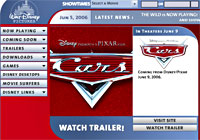 Instead, the movies can only be copied to a total of three other devices (including laptop PCs and handheld electronic devices) supporting CinemaNow’s copyright-protection technology.
Instead, the movies can only be copied to a total of three other devices (including laptop PCs and handheld electronic devices) supporting CinemaNow’s copyright-protection technology.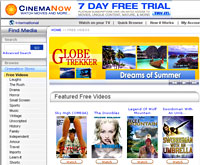 “We take that as a real nice vote of confidence,” he added, before trotting off to the litter tray.
“We take that as a real nice vote of confidence,” he added, before trotting off to the litter tray. Apple’s hugely popular iTunes music download service looks set to face some mighty competition in the coming months.
Apple’s hugely popular iTunes music download service looks set to face some mighty competition in the coming months.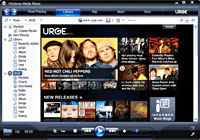 Users wanting to transfer songs onto portable music players can subscribe to the $14.95 service, with tunes protected by anticopying software from Microsoft.
Users wanting to transfer songs onto portable music players can subscribe to the $14.95 service, with tunes protected by anticopying software from Microsoft. Noting that consumers have embraced satellite radio because it features dozens of channels with music chosen by experts, Harris reckoned that this could prove a real advantage to the Urge service.”You’ve got the experts in music here from MTV doing programming across a whole bunch of genres,” he commented.
Noting that consumers have embraced satellite radio because it features dozens of channels with music chosen by experts, Harris reckoned that this could prove a real advantage to the Urge service.”You’ve got the experts in music here from MTV doing programming across a whole bunch of genres,” he commented.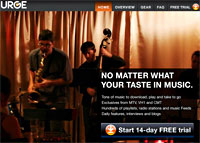 Although Harris admitted that the iPod incompatibility issue was “a hurdle that we have to get over” (an understatement, we reckon!), he added that, “there’s a long way to go in this market,” pointing out that the zillions of iPods sold still represent a fraction of the potential audience for music downloads.
Although Harris admitted that the iPod incompatibility issue was “a hurdle that we have to get over” (an understatement, we reckon!), he added that, “there’s a long way to go in this market,” pointing out that the zillions of iPods sold still represent a fraction of the potential audience for music downloads. EFF-fans and electronic freedom groupies have a new poster boy who comes from an unlikely profession. They’re normally attracted to open-source code-a-holics, or white hat hacker, but this one’s a judge.
EFF-fans and electronic freedom groupies have a new poster boy who comes from an unlikely profession. They’re normally attracted to open-source code-a-holics, or white hat hacker, but this one’s a judge. The ride wasn’t so rough from the other two judges, with the second, David Sentelle, appearing to side with the FCC, especially for Internet phone services. The last, Janice Brown kept her thoughts to herself.
The ride wasn’t so rough from the other two judges, with the second, David Sentelle, appearing to side with the FCC, especially for Internet phone services. The last, Janice Brown kept her thoughts to herself. A quick catchup. We’ve been covering the
A quick catchup. We’ve been covering the  In 1998 A Bug’s Life came along also bringing $362m in worldwide ticket sales, 1999 saw Toy Story 2 ($485m). The following years saw Monsters Inc, Finding Nemo, The Incredibles all do very well, sealing Pixar as _the_ CG animation stuido.
In 1998 A Bug’s Life came along also bringing $362m in worldwide ticket sales, 1999 saw Toy Story 2 ($485m). The following years saw Monsters Inc, Finding Nemo, The Incredibles all do very well, sealing Pixar as _the_ CG animation stuido.